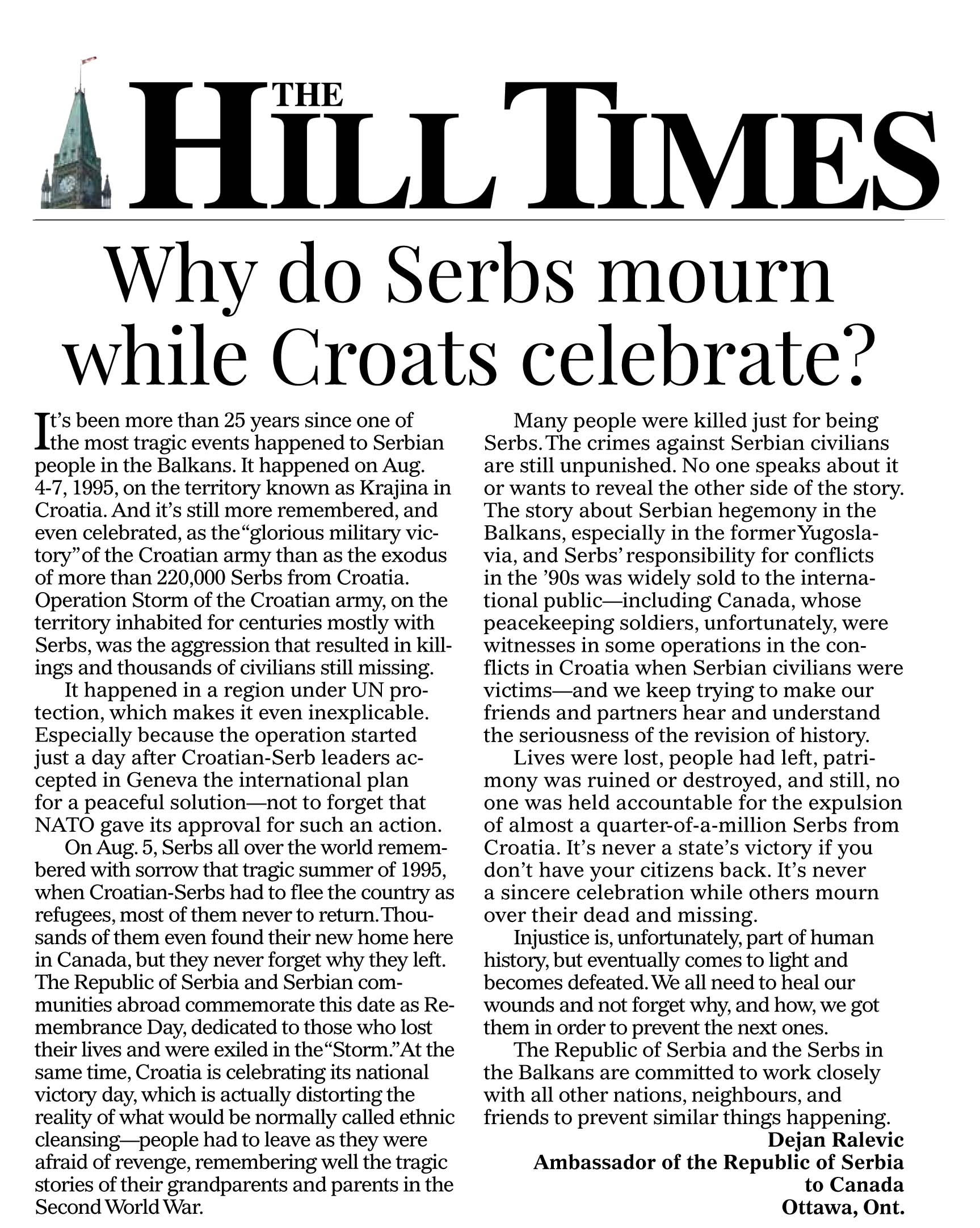Hill Times
It’s been more than 25 years since one of the most tragic events happened to Serbian people in the Balkans. It happened on Aug. 4-7, 1995, on the territory known as Krajina in Croatia. And it’s still more remembered, and even celebrated, as the “glorious military victory” of the Croatian army than as the exodus of more than 220,000 Serbs from Croatia.
Operation Storm of the Croatian army, on the territory inhabited for centuries mostly with Serbs, was the aggression that resulted in killings and thousands of civilians still missing. It happened in a region under UN protection, which makes it even inexplicable.
Especially because the operation started just a day after Croatian-Serb leaders accepted in Geneva the international plan for a peaceful solution—not to forget that NATO gave its approval for such an action.
On Aug. 5, Serbs all over the world remembered with sorrow that tragic summer of 1995, when Croatian-Serbs had to flee the country as refugees, most of them never to return. Thousands of them even found their new home here in Canada, but they never forget why they left.
The Republic of Serbia and Serbian communities abroad commemorate this date as Remembrance Day, dedicated to those who lost their lives and were exiled in the “Storm.” At the same time, Croatia is celebrating its national victory day, which is actually distorting the reality of what would be normally called ethnic cleansing—people had to leave as they were afraid of revenge, remembering well the tragic stories of their grandparents and parents in the Second World War.
Many people were killed just for being Serbs. The crimes against Serbian civilians are still unpunished. No one speaks about it or wants to reveal the other side of the story.
The story about Serbian hegemony in the Balkans, especially in the former Yugoslavia, and Serbs’ responsibility for conflicts in the ’90s was widely sold to the international public—including Canada, whose peacekeeping soldiers, unfortunately, were witnesses in some operations in the conflicts in Croatia when Serbian civilians were victims—and we keep trying to make our friends and partners hear and understand the seriousness of the revision of history.
Lives were lost, people had left, patrimony was ruined or destroyed, and still, no one was held accountable for the expulsion of almost a quarter-of-a-million Serbs from Croatia. It’s never a state’s victory if you don’t have your citizens back. It’s never a sincere celebration while others mourn over their dead and missing.
Injustice is, unfortunately, part of human history, but eventually comes to light and becomes defeated. We all need to heal our wounds and not forget why, and how, we got them in order to prevent the next ones.
The Republic of Serbia and the Serbs in the Balkans are committed to work closely with all other nations, neighbours, and friends to prevent similar things happening.
Dejan Ralevic
Ambassador of the Republic of Serbia to Canada
Ottawa, Ontario
